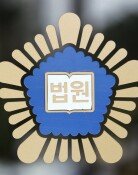[Focus] Ripple of Armitage's comment on ¡®sunshine policy¡¯
[Focus] Ripple of Armitage's comment on ¡®sunshine policy¡¯
Posted January. 29, 2001 12:06,
The arrival of the Republican administration in the United States has brought a concern here about its hard line toward North Korea and its possibly adverse impact upon the Seoul-Washington alliance. The concern is being realized gradually.
When he met with a ruling party leader from Seoul, Hahn Hwa-Kap of the Millennium Democratic Party supreme council, Richard Armitage, U.S. deputy secretary of state-designate, made a candid utterance bordering on interference in the internal affairs of another country. The statement of his personal displeasure at the terminology of a friendly government, suggesting that South Korea yields too much to North Korea, was highly undiplomatic, according to government officials here. Yet his opinion chimes with the view entertained by many conservative figures here on North Korea policy. It thus is likely to touch off much controversy as to the engagement policy of the incumbent Seoul government inside South Korea and between Seoul and Washington, as well.
Argument on terminology:
Foreign Ministry officials say they did not adopt a "sunshine policy" as an official English term, and have refrained from using it after the inter-Korean summit. They prefer "engagement policy" and use mostly a policy of reconciliation and cooperation with the North "to highlight the sense that the two Koreas are working together. Armitage made the remarks without knowing the situation here, according to them.
The prospective state department official might have based his advice against the use of the term on his personal preference. Also, it might be true that the expression strikes a distinct note of appeasement. Therefore, the meek policy of the Seoul government embracing North Korea can run into conflict with the policy of the Bush administration calling for strict reciprocity and verification in all business with the Stalinist state.
Former Secretary of State James Baker said in an interview with this newspaper that any agreement with North Korea ought to be verified to keep it from ending up an exercise in rhetoric. He advised the Seoul government against describing as progress Madeleine Albright's travel to Pyongyang, which, according to Baker, appeared like a historic step forward in Washington-Pyongyang relations but failed to bear fruit.
Threat from North Korea:
The potential threat from North Korea could remain the Achilles' heel of the relations between Seoul and Pyongyang, and between Pyongyang and Washington, South Korean officials fear. It is generally accepted that reduction of North Korea's conventional weapons and pulling back its forward-deployed troops would be discussed only after detente and confidence building have moved ahead considerably. It also calls for medium- and long-term approaches as the linchpin of a permanent peace structure on the Korean peninsula.
The Republican Party in the United States regards it as a most effective condition for North Koreans to show their change and vindicate their claim to peaceful intentions.
Some specialists point out that the statement by Armitage might reflect the orientation of some of the military brass now on the foreign policy team and the influence of the defense industry. A ranking Seoul official spelled out his concern like this: North Korea's responsiveness to the demands of the Republican administration will mean a plus to security in the Korean peninsula but a too rigid and demanding stance from Washington could affect the existing framework of the engagement policy vis-a-vis North Korea.
Boo Hyung-Kwon bookum90@donga.com




![“한동훈, 정치생명 걸고 무소속 출마해 평가받는 것 고려할만”[정치를 부탁해]](https://dimg.donga.com/c/138/175/90/1/wps/NEWS/IMAGE/2026/01/19/133186982.1.jpg)


